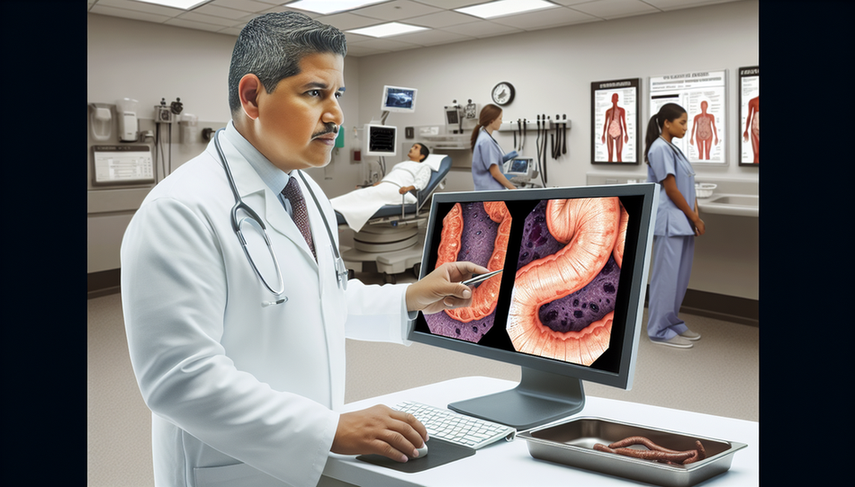IBD Diagnosis: The Role of Colonoscopy, Biopsy, and Fecal Markers in Identifying Transmural Inflammation and Granulomas in Ulcerative Colitis and Crohn's Disease

The inflammatory bowel disease (IBD), which includes Crohn's disease and ulcerative colitis, presents a significant diagnostic challenge due to its variable clinical presentation and symptom overlap with other gastrointestinal pathologies. Colonoscopy and biopsy are fundamental tools in the IBD diagnosis, allowing for direct visualization of the intestinal mucosa and obtaining samples for histopathological analysis.
Diving Deeper into Diagnosis: Endoscopy and Biopsy
Colonoscopy is the method of choice for assessing the extent and severity of inflammation in IBD. During endoscopy, distinctive features such as transmural inflammation and the presence of granulomas can be observed in Crohn's disease, while in ulcerative colitis, the inflammation is limited to the mucosa and presents continuously from the rectum to the proximal colon.
Biopsy is crucial for confirming the diagnosis and differentiating between Crohn's disease and ulcerative colitis. According to the European consensus, histological examination of endoscopic biopsies is essential for identifying specific characteristics of each disease and ruling out other colitides unrelated to IBD.
Additionally, fecal markers such as fecal calprotectin have emerged as useful non-invasive tools for assessing inflammatory activity and guiding the need for endoscopic procedures. These markers can help distinguish IBD from other conditions such as irritable bowel syndrome.
Conclusions
The combination of endoscopy and biopsy remains the gold standard for IBD diagnosis, providing critical information about the extent and nature of intestinal inflammation. However, the development of non-invasive biomarkers offers a promising alternative to reduce the need for invasive procedures, thereby improving patient experience and optimizing disease management.
Referencias
- [1] Endoscopy in inflammatory bowel disease: Role in diagnosis, management, and treatment.
- [2] European consensus on the histopathology of inflammatory bowel disease.
- [3] Calprotectin in inflammatory bowel disease.
- [4] Positioning and Usefulness of Biomarkers in Inflammatory Bowel Disease.
Created 6/1/2025
